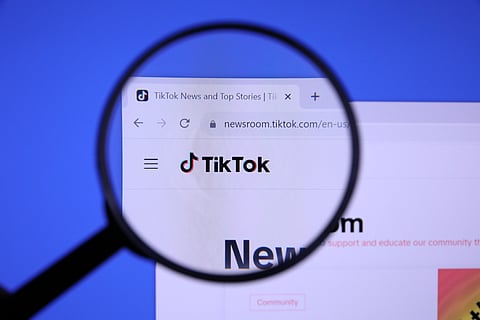

President Donald Trump and Chinese President Xi Jinping are scheduled to hold a pivotal phone conversation on Friday, aiming to seal a deal that would preserve TikTok's presence in the United States while addressing broader economic frictions between the two global powers.
The discussion, marking the leaders' first known contact in three months, places the TikTok agreement at the forefront alongside ongoing trade negotiations, according to U.S. officials.
Although Beijing has yet to verify the call's occurrence, it aligns with preparations for a possible in-person summit during the Asia-Pacific Economic Cooperation gathering in South Korea from October 30 to November 1.
Congress mandated the shutdown of TikTok for American users by January 2025 unless its U.S. operations are divested from parent company ByteDance, citing national security risks.
Trump has repeatedly postponed enforcement of this measure, extending the deadline to December 16, to facilitate a transfer of assets to domestic buyers and avoid backlash from the app's estimated 170 million U.S. users.
Central to Friday's agenda is finalizing the ownership shift for TikTok's American segment, ensuring compliance with legislative demands while mitigating concerns over data privacy and algorithmic influence.
Sources indicate the revamped U.S. entity would retain access to ByteDance's core recommendation algorithm, a stipulation that has sparked apprehension among lawmakers.
Bipartisan critics, including Rep. John Moolenaar, R-Mich., and Rep. Raja Krishnamoorthi, D-Ill., have voiced reservations about any arrangement permitting continued Chinese oversight of the technology.
Krishnamoorthi emphasized in a statement Thursday:
President Trump has all the leverage he needs to strike a deal that saves TikTok and complies with the law — which means making sure TikTok’s data and algorithm are truly in American hands.
China's Commerce Ministry confirmed a "basic framework consensus" on the matter but reiterated opposition to the politicization of trade and technology issues.
Officials in Beijing maintain that no substantiated national security threats emanate from the platform, dismissing U.S. allegations of data sharing or content manipulation.
The call also grapples with the protracted trade war, where tariff escalations peaked at triple-digit levels in April before subsiding to a U.S. cap of 30% on Chinese imports and China's 10% levy on American goods—a truce expiring November 10.
Trump expressed optimism Thursday, stating the sides are "pretty close to a deal" and considering an extension under existing favorable conditions.
Outstanding disputes encompass U.S. demands for increased Chinese procurement of soybeans and Boeing aircraft, curbs on fentanyl precursor exports, and restrictions on advanced technologies like semiconductors and rare earths.
As both economies show signs of deceleration, the leaders' dialogue underscores efforts to stabilize bilateral ties amid Trump's deal-oriented foreign policy.
Analysts caution that while a TikTok resolution might yield short-term relief, it pales against deeper rivalries in artificial intelligence and chip manufacturing.
Dimitar Gueorguiev, an associate professor at Syracuse University stated that the "real contest" is in access to advanced technology.